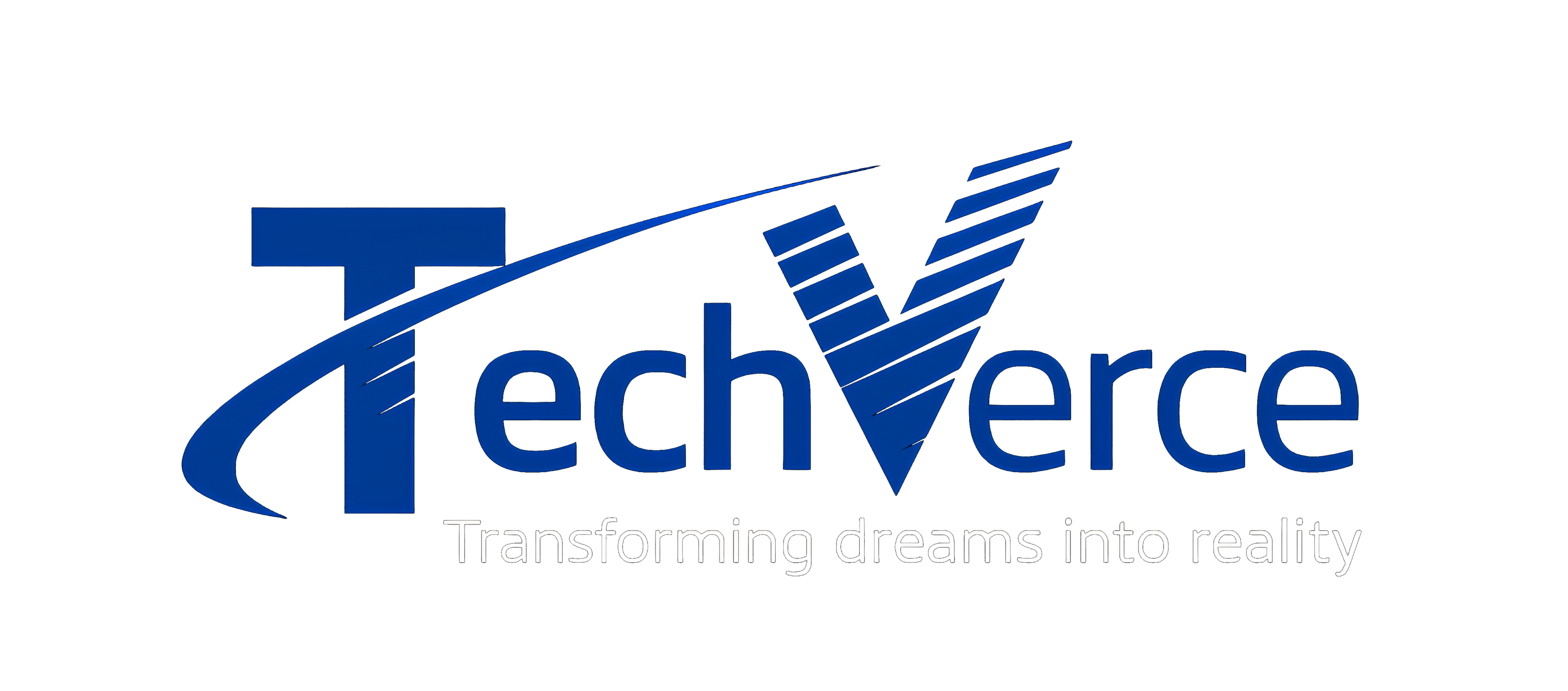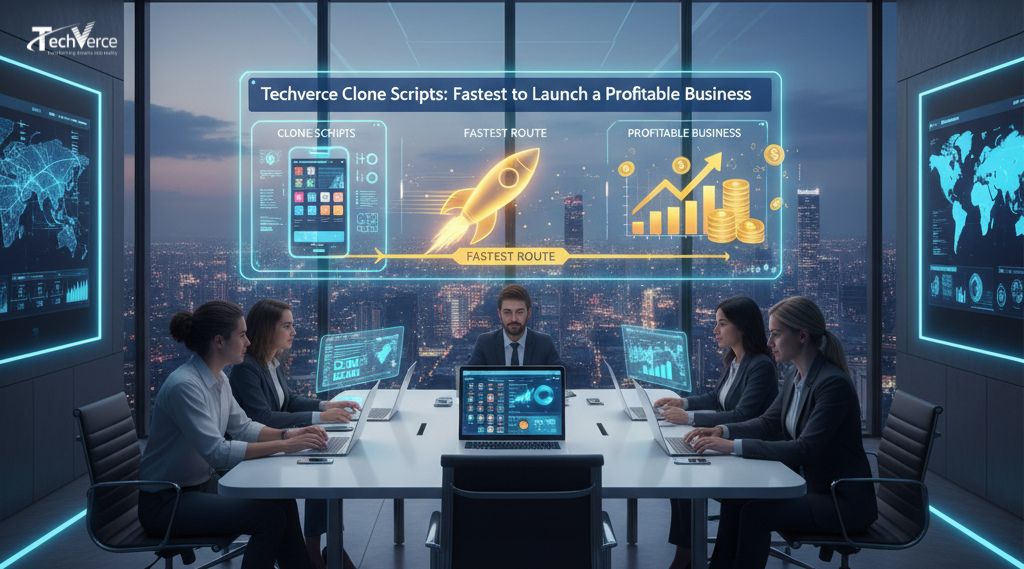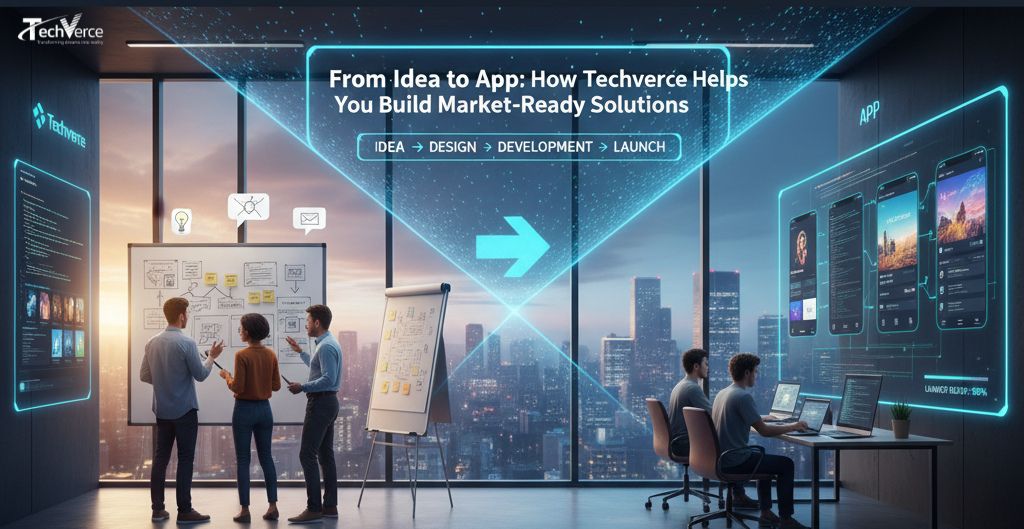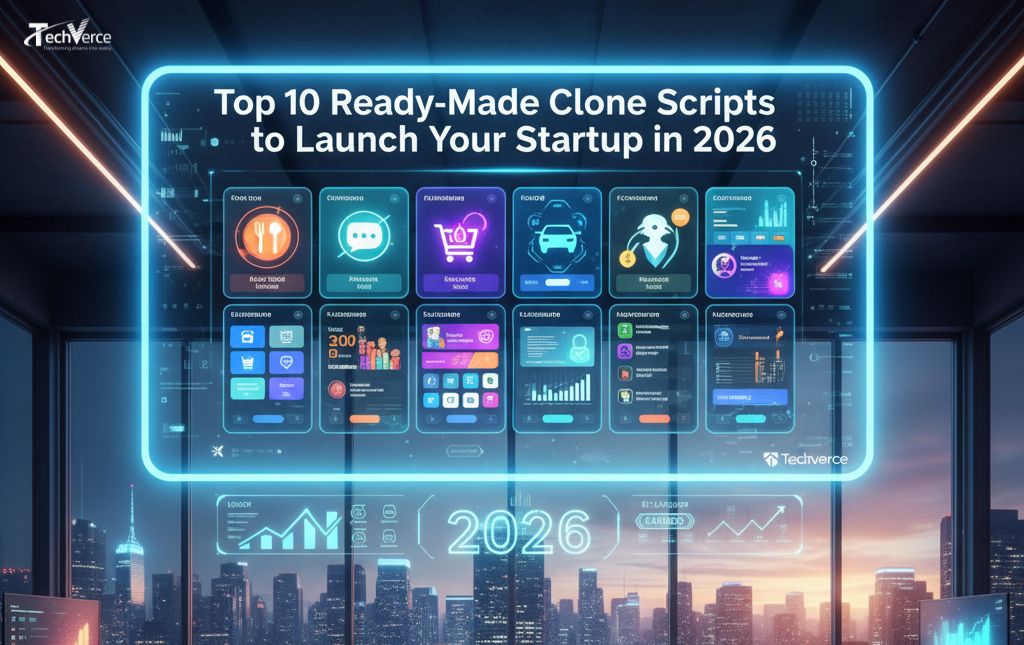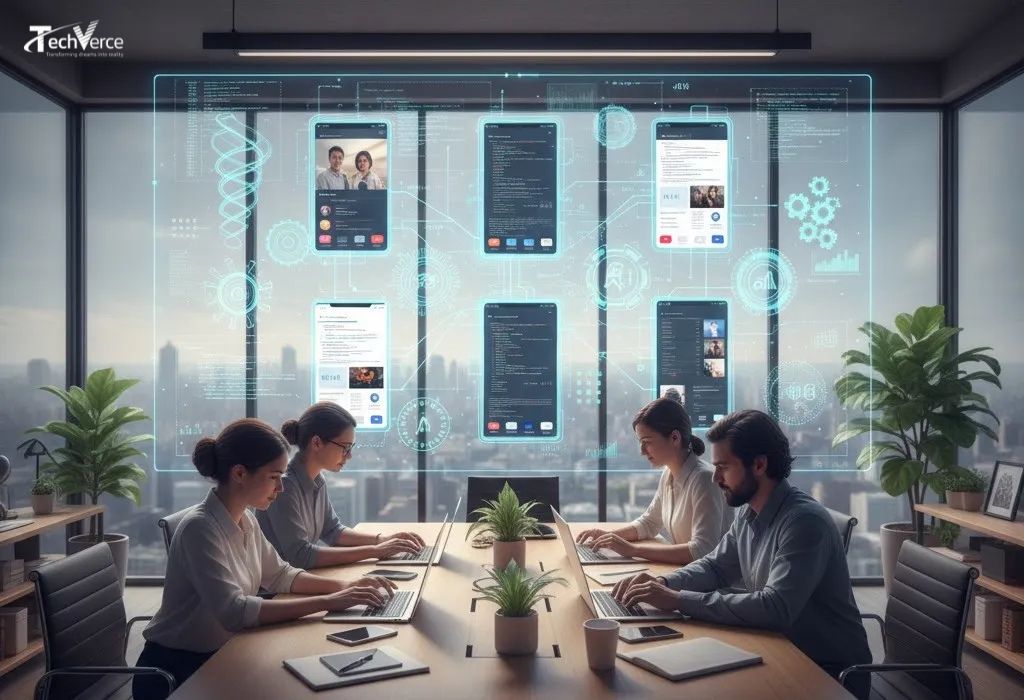
- By Tech Verce
- 02 Nov, 2025
- IT Consultancy
How Clone Scripts Are Revolutionizing the Software Development Industry
The software development industry is undergoing a quiet revolution—one led not by colossal budgets or exclusive innovation labs, but by the practical brilliance of clone scripts. By combining affordability, flexibility, and innovation, clone scripts have democratized access to technology. They empower entrepreneurs, accelerate digital transformation, and encourage creative reinvention across industries.
In today’s rapidly evolving digital economy, innovation and speed define success. Startups, entrepreneurs, and enterprises alike are seeking ways to bring their digital ideas to life in record time and at minimal cost. However, traditional software development—although thorough and customizable—often demands significant investment, prolonged timelines, and extensive technical expertise.
Amid this landscape, clone scripts have emerged as a transformative force, reshaping how software products are conceptualized, developed, and deployed. Far from being mere replicas, modern clone scripts represent optimized, scalable, and customizable frameworks that accelerate innovation and empower businesses to compete effectively in the global market.
This article explores how clone scripts are revolutionizing the software development industry—technically, economically, and strategically—and why companies like Techverce are at the forefront of this technological evolution.
1. Understanding Clone Scripts: Beyond the Misconceptions
A clone script is a pre-built software solution inspired by a successful platform or application. For instance, an Uber clone mirrors the fundamental logic of Uber’s ride-hailing model, while allowing for custom features, design variations, and integration with new technologies.
It is a misconception that clone scripts are direct copies. In reality, they serve as base frameworks—carefully engineered blueprints that replicate the business logic and user flow of existing, proven platforms. Developers can then modify, extend, and rebrand them according to specific requirements.
Clone scripts are developed through extensive reverse engineering and technological optimization. They preserve the core concept but are built with original codebases, ensuring both legal compliance and performance reliability.
2. The Rise of Clone Development in the Digital Era
The global surge in demand for clone scripts can be attributed to several concurrent developments in the tech world:
-
Startup Explosion:
With entrepreneurship becoming a global movement, millions of startups aim to launch digital products without the burden of long development cycles.
-
High Cost of Original Development:
Building an app like Uber, Airbnb, or Amazon from scratch requires massive financial and human resources—often beyond the reach of emerging businesses.
-
Need for Speed:
The competitive nature of today’s market leaves little room for delay. Clone scripts enable entrepreneurs to launch in weeks rather than months.
-
Advancements in Customizable Architecture:
Modern clone scripts are built with modular architectures, APIs, and scalable databases, allowing them to function like enterprise-grade systems.
Together, these factors have made clone scripts an essential pillar of the modern software development ecosystem.
3. Economic Impact: Redefining Cost Efficiency
Perhaps the most striking advantage of clone scripts lies in their cost-effectiveness.
Traditional app development typically involves:
-
Extensive market research and prototyping
-
UI/UX design from scratch
-
Full-cycle development of front-end, back-end, and database systems
-
Rigorous testing, debugging, and quality assurance
This process can cost anywhere from $50,000 to over $500,000 depending on the complexity of the platform.
In contrast, a well-developed clone script provides an 80–90% ready solution. Businesses only need to invest in customization, branding, and feature enhancements. The result is a cost reduction of up to 70% and a time-to-market reduction of over 60%.
By lowering the financial barrier, clone scripts have democratized software development, allowing small and medium enterprises to compete with industry giants.
4. Technological Evolution: The Modern Clone Script Architecture
Gone are the days when clone scripts were simple copies of code. The contemporary clone script is a highly sophisticated, modular, and future-ready software product.
Key Technological Characteristics:
-
Modular Frameworks:
Each component—authentication, payment gateway, notifications, analytics—is independent and replaceable, ensuring flexibility and scalability.
-
API-Driven Development:
Integration with third-party tools (such as payment processors, maps, chat systems, and CRMs) is seamless, making the script highly adaptive.
-
Cloud Compatibility:
Most modern clone scripts are designed for AWS, Google Cloud, and Azure, providing enhanced performance and security.
-
Cross-Platform Support:
Clone solutions are often built with technologies such as React Native, Flutter, or Ionic, allowing deployment on Android, iOS, and web platforms.
-
Security-Enhanced Code:
At companies like Techverce, clone scripts undergo rigorous code reviews, encryption, and penetration testing to ensure enterprise-level safety.
This evolution demonstrates that clone scripts today are not mere shortcuts; they are powerful frameworks capable of supporting enterprise-scale applications.
5. The Strategic Advantage: Speed Meets Innovation
In the software industry, time-to-market often determines the fate of a business idea. A delay of even a few months can render a product obsolete or allow competitors to dominate.
Clone scripts bridge this gap between innovation and execution. Entrepreneurs can immediately enter the market with a functional product, begin generating revenue, and continue to innovate through incremental updates.
This agile model mirrors the “MVP (Minimum Viable Product)” approach, where a working version of the app is launched first, and subsequent versions are improved based on user feedback.
Thus, clone scripts are not obstacles to innovation—they accelerate it, providing a launchpad for creativity and growth.
6. Legal and Ethical Dimensions
One of the most debated topics surrounding clone scripts is legality. The distinction between cloning and copying must be made clear.
-
Cloning refers to recreating the concept or business model using original code and design.
-
Copying involves unauthorized use of proprietary assets such as logos, brand names, or copyrighted materials.
When developed responsibly—as Techverce ensures—clone scripts remain fully legal, ethical, and compliant with international intellectual property laws.
Ethical clone development emphasizes:
-
Original coding and UI/UX design
-
No duplication of proprietary assets
-
Adherence to local data-protection regulations
This approach maintains respect for innovation while fostering technological accessibility for all.
7. The Role of Clone Scripts in Startup Ecosystems
Startups operate under two critical constraints—limited budget and limited time. Clone scripts effectively address both.
Let us consider a few examples:
-
A food delivery startup can deploy a Swiggy clone or UberEats clone in a few weeks, focusing immediately on marketing and customer acquisition.
-
An entrepreneur entering e-commerce can launch an Amazon clone or Flipkart clone with ready inventory management, order tracking, and secure payments.
-
A fintech startup can use a Paytm clone or CashApp clone to provide seamless digital transactions.
By offering tested, reliable architecture, clone scripts eliminate the need for businesses to reinvent the wheel. Startups can allocate their energy to differentiation, innovation, and growth, rather than basic infrastructure.
In this way, clone scripts have become the backbone of emerging digital enterprises worldwide.
8. From Replication to Innovation: The New Paradigm
Critics often argue that clone development stifles originality. Yet, in practice, clone scripts have led to a new wave of innovation.
How? By freeing developers from repetitive groundwork, allowing them to focus on creativity.
For instance:
-
A Netflix clone can be transformed into a learning platform with video lectures and analytics.
-
An Airbnb clone can evolve into a peer-to-peer co-working space rental platform.
-
An Uber clone can be modified for logistics, trucking, or parcel delivery services.
The versatility of clone scripts promotes innovation by enabling diverse adaptations across sectors.
This evolution signifies a shift from replication to reinvention—a philosophy embraced deeply by Techverce.
9. The Techverce Approach: Excellence in Clone Development
At Techverce, clone development is treated not as imitation but as engineering precision.
Each clone script is built with the following principles:
-
Performance Optimization:
Every line of code is tested for speed, security, and scalability.
-
Customizability:
Clients receive flexible architecture that can be rebranded and expanded without dependency on the base developer.
-
Aesthetic Excellence:
Our design team ensures UI/UX layouts that are unique, elegant, and aligned with modern design standards.
-
Compliance and Security:
All scripts are built in accordance with GDPR, PCI-DSS, and global security protocols.
-
Technical Support and Documentation:
Techverce provides comprehensive post-deployment assistance, updates, and detailed documentation for clients’ teams.
Through this methodology, Techverce empowers businesses not just to launch, but to succeed.
10. Case Studies: Real-World Impact of Clone Solutions
A. Ride-Hailing Startup (Uber Clone)
A regional transport company adopted Techverce’s Uber Clone to digitize its services. Within two months, they launched an operational platform complete with real-time tracking, automated payments, and driver analytics. The business achieved a 300% growth in ride bookings within the first quarter.
B. E-Commerce Venture (Amazon Clone)
A startup based in Southeast Asia used Techverce’s E-Commerce Clone Script to enter the online retail market. By leveraging the pre-built inventory and order modules, they reduced their setup time by 80%. Within six months, they reported a positive cash flow and over 10,000 registered users.
C. Food Delivery Platform (Zomato Clone)
A restaurant chain wanted to expand into online ordering. Techverce’s Zomato Clone enabled them to launch a fully functional delivery system with GPS integration and commission management. The platform now handles over 5,000 orders per day, showcasing the scalability of clone-based architecture.
These case studies illustrate how clone scripts are not theoretical concepts, but practical tools delivering measurable success.
11. Economic Ripple Effects: A Global Perspective
The popularity of clone scripts has extended beyond startups.
-
Developing nations benefit by rapidly adopting digital infrastructure.
-
Freelancers and agencies gain opportunities by offering customization services.
-
End-users enjoy affordable digital platforms and improved accessibility.
In essence, clone scripts contribute to a global redistribution of technological capability. What was once exclusive to Silicon Valley can now emerge from any part of the world.
12. Future of Clone Development: Trends to Watch
As technology continues to advance, the clone script industry will evolve along several dimensions:
-
AI Integration:
Future clone solutions will include intelligent recommendations, chatbots, and automation modules.
-
Web3 and Blockchain:
Decentralized clones of financial and marketplace platforms will enhance transparency and trust.
-
No-Code Customization:
Drag-and-drop clone builders will empower non-technical founders to modify scripts with ease.
-
Enhanced Cybersecurity:
Encryption, user privacy, and multi-factor authentication will become standard components.
-
Global Compliance:
Scripts will adapt to regional data and taxation laws automatically through modular configuration.
With these advancements, clone development will move from being a cost-saving solution to a strategic innovation engine.
13. The Ethical Commitment of Techverce
As a responsible technology company, Techverce adheres to the highest ethical standards in software creation. Every project follows a strict code of integrity:
-
Respect for intellectual property rights
-
Transparency with clients regarding source code and customization
-
Assurance of originality in design and logic
-
Continuous security audits and legal compliance checks
This ethical foundation ensures that the progress driven by clone scripts remains sustainable and respectable.
